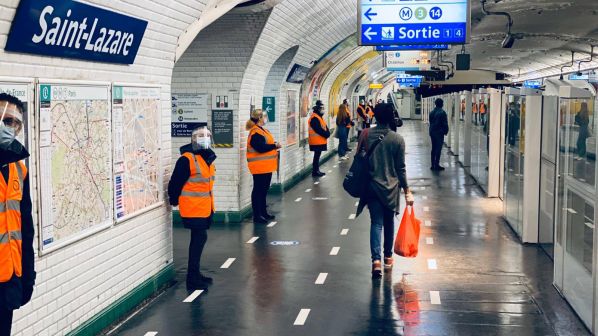Delli and 48 public transport leaders, including UITP president, Mr Pere Calvet, and secretary general, Mr Mohamed Mezghani, along with the heads of public transport authorities and operators in cities across Europe, signed the declaration.
“The current polycrisis that affects the whole world has had significant impact on the overall economy,” the declaration states. “The consequences on the public transport operators and authorities are multifaceted and will continue to be felt for several years. The sector needs to be supported in order to be able to survive this crisis and to meet our expectations on sustainable mobility.”
The signatories have identified the following issues which need to be addressed:
- Public transport needs to be the backbone of a local mobility strategy across the EU.
The signatories express their regret that the sector does not seem to be a clear priority in the commission and the member state’s recovery plans and in the coming European strategies in the Green Deal. They state that the EC should introduce policies that reallocate space in favour of public transport.
- The need for economic and financial support
With an estimated €40bn shortfall in farebox revenues, the sector is expected to continue to operate a near full-service and therefore needs short-term financial support to bridge this gap. The declaration also urges European decision makers not to forget the specificities of public transport funding, which often rely on different tax systems, and not to overlook the vital employment provided by the sector.
- Investments to increase the level of service, welcome higher numbers of passengers and accelerate the transition to low and zero emissions mobility
The declaration also calls for a series of investments in infrastructure and assets to face the challenges of sustainability and digitalisation, and to meet growing passenger demand and expectations. Investment should also be targeted at maintenance projects, and much of this funding should come from grants. The declaration identifies grant funding as core to these efforts, notably the Recovery and Resilience Facility and through InvestEU.
“The upcoming European strategy for Sustainable and Smart Mobility should provide the tools to address the importance of sustainable collective mobility needs,” the declaration says. “In 2018, buses, tramways, metros, suburban and regional rail in Europe carried almost 60 billion passengers, and avoided more than 40 billion car journeys. More than ever, the Green Deal is an opportunity for the EU to propose and implement concrete solutions to improve daily life and mobility for millions of citizens.”
Freight
Delli has also joined with European freight leaders as well as Mr Josef Doppelbauer, executive director of the European Union Agency for Railways (ERA), Mr Francçois Davenne, secretary general of the International Union of Railways, Mr Conor Feighan, secretary general of the European Rail Freight Association (Erfa) and Mr Libor Lochman, executive director, of the Community of European Railways and Infrastructure Companies, to form a new coalition, which similarly calls on European leaders to foster modal shift to rail to fulfil European climate goals after coronavirus.
Rail freight operators which have signed up include members of the Rail Freight Forward Initiative, which aims to increase the modal share of European rail freight from 18% to 30% by 2030. The coalition has highlighted four primary requirements for the growth of rail freight within the EU:
- discussion of the differences in costs and competition concerns between road and rail must be encouraged at top levels of government, including a revision of the Rail Freight Corridors Regulation 913/2010 to ease difficulties in operating international rail freight
- economic and financial support is needed, both to overcome the Covid-19 crisis and to incentivise eco-friendly investments, such as encouraging EU member states to lower access charges for rail freight operators
- investments targeting infrastructure should be prioritised, using new technologies to expand capacity, and to improve rail freight operators’ capability to deliver efficient services, and
- digitalisation and standardisation should be encouraged to make rail freight as green as possible, so long as they preserve jobs and comply with strict data policies.
The coalition also state the importance of building connections between rail freight and other forms of freight transport. They emphasise the need to prioritise rail freight transport across borders and through transport corridors such as the Trans-European Transport Networks (TEN-T).
“Rail freight is far cleaner than road freight. It generates nine times fewer greenhouse gas emissions than road freight does,” the coalition says. “Fostering rail freight is key to achieving the Paris agreements and the Green Deal climate goals. We are committed to relaunching rail freight as soon as possible [after the coronavirus crisis].”

